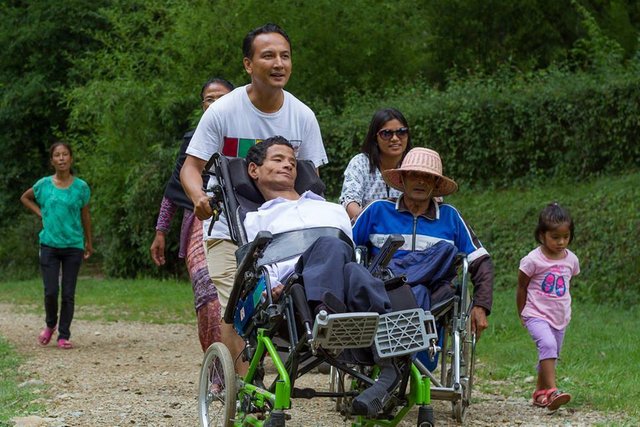
For people with disabilities Nepal was once a destination to avoid. This has changed. And quickly. In this “Good Tourism” Insight, Pankaj Pradhananga shares how Nepal’s reputation as an accessible and inclusive destination has rapidly ascended.
In the first episode of my talk show ‘Beyond Limits’, Jezza Williams from New Zealand shared his experience exploring Nepal as a person with a disability. When he was asked about the inclusiveness of Nepal, it was quite surprising and pleasing to hear him say that Kathmandu’s inclusivity was not just limited to accessibility but was also about hospitality. He fondly reminisced of the time when the locals of Kathmandu enthusiastically helped him delve into each and every nook of the city.
“Kathmandu is the most inclusive city I have ever been to,” Jezza asserted.
Generally speaking, Nepal is perceived to be a destination for adventure seekers and allocentric travellers (“allocentric” as defined for use in travel & tourism by Stanley Plog in his ‘Psychographic Model’). However, a good number of travellers have found Nepal ... For the full "GT" Insight, visit https://goodtourismblog.com/2020/10/accessible-tourism-for-all-the-new-mantra-in-nepal/
I like that the issue of inclusiveness is becoming increasingly relevant now. After all, the process of involving people with disabilities in the general environment of society is extremely important. But in fact, this is a much broader phenomenon, affecting almost all aspects of our lives. Here you can learn more about the features of Inclusive City. However, inclusion implies not only equality of people in terms of health parameters - it is also gender, social, racial, ethnic, age and cultural equality.
Downvoting a post can decrease pending rewards and make it less visible. Common reasons:
Submit